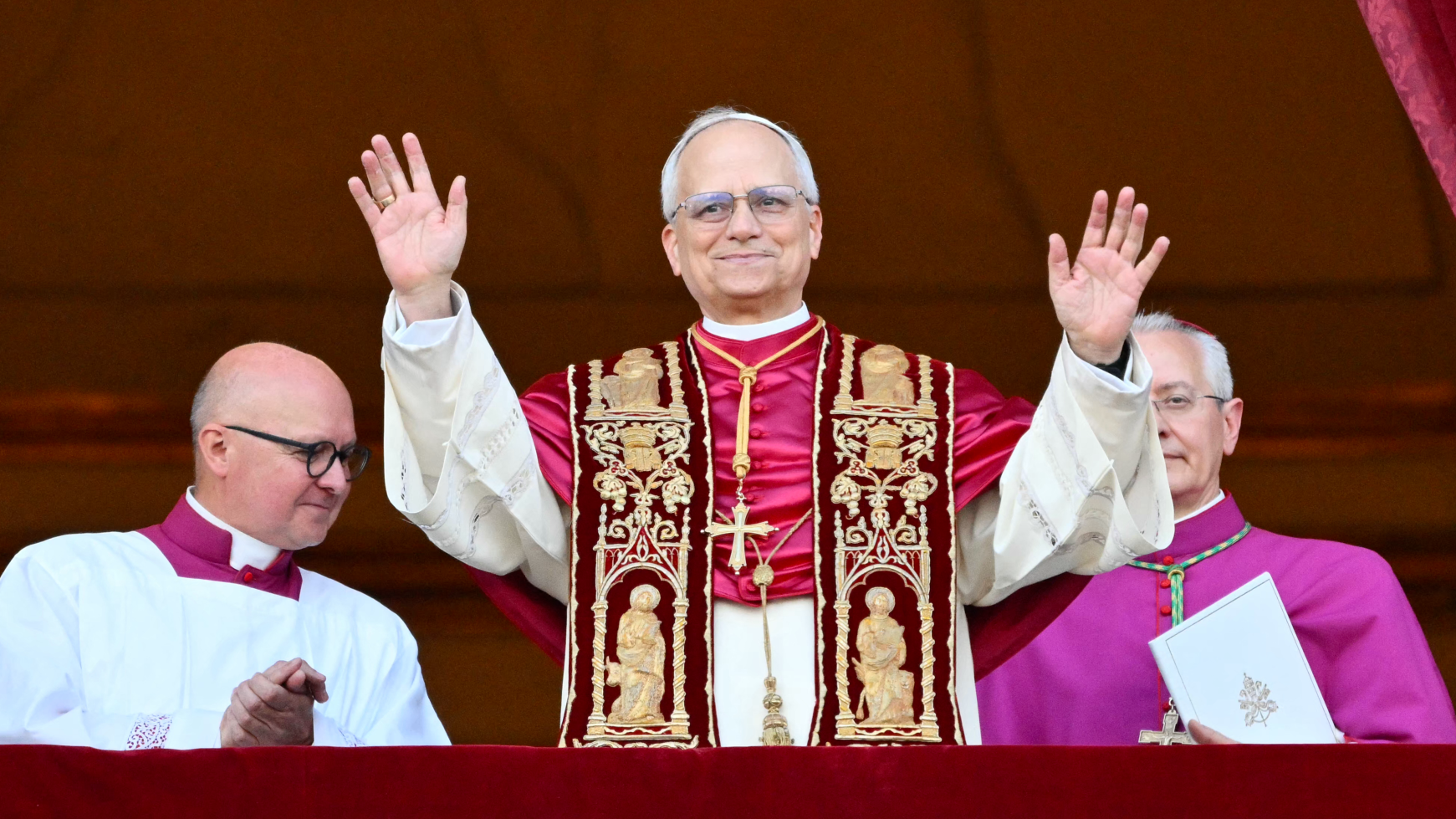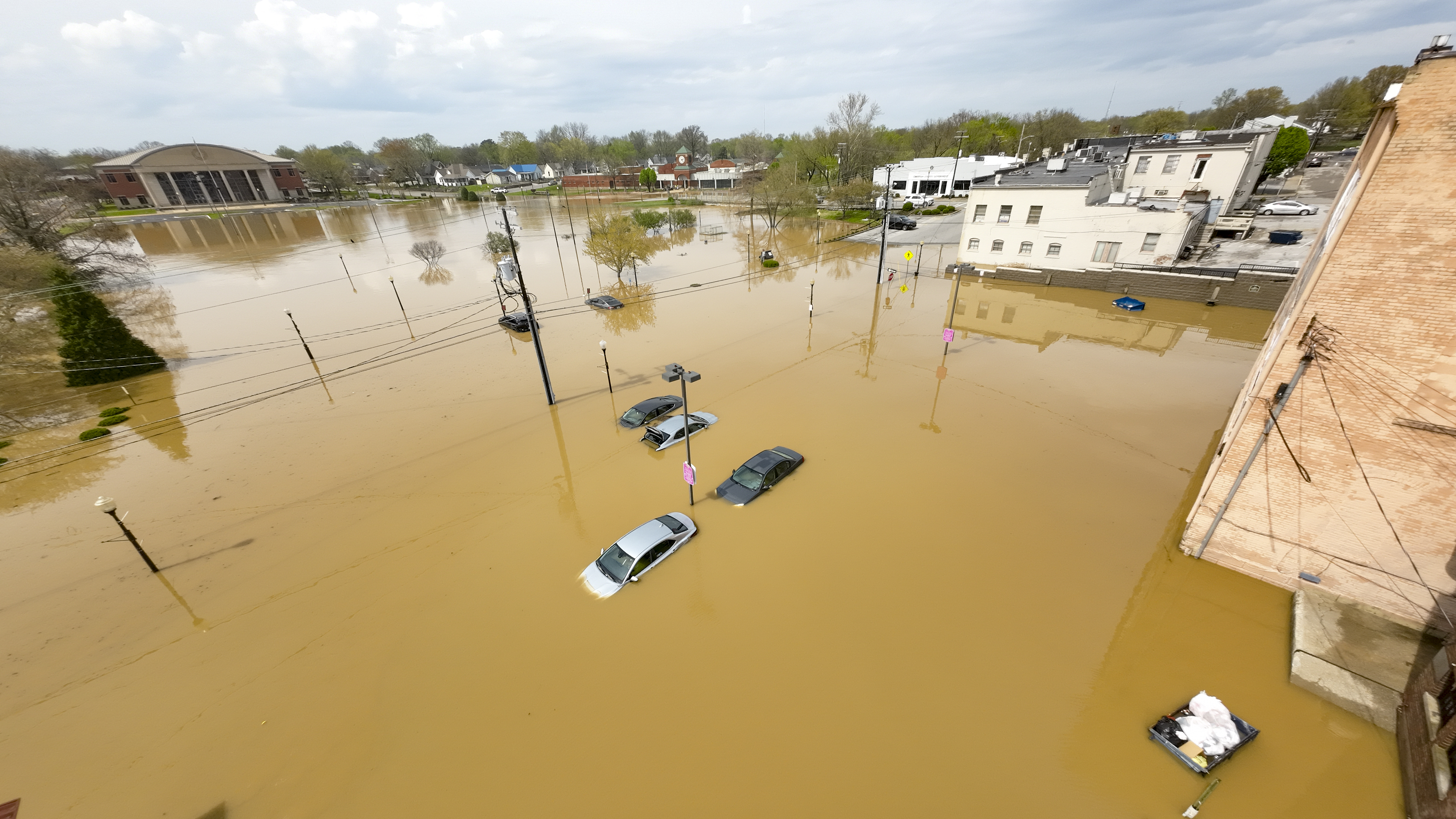What does the Pope do, anyway?
Newly-elected Leo XIV is the first pope from the United States.

Editor's Note: This story was updated on May 8, 2025, at 2:10 p.m. ET.
The Catholic church has a new pope: Leo XIV. Born Robert Francis Prevost in Chicago, Illinois, the 69-year-old is the first pope elected from the United States. He takes the helm of the church following the death of Pope Francis on April 21. Leo XIV spent many years in Peru and was made a cardinal by Francis in 2023. It's unclear so far how Leo XIV will lead, but one thing is for sure: The new pontiff will have a grueling schedule.
The late Francis, Benedict XVI and John Paul II all worked days that could stretch from 5 a.m. until 11 p.m. or even midnight, Don Briel, the director of the Center for Catholic Studies at the University of St. Thomas in Minnesota, told Live Science in 2013 when Pope Francis was first elected.
"The papacy has assumed a much more visible, prominent role and has become, as a result, much more exhausting in terms of its obligations," Briel said.
A pope's duties
The broad job description for the role of pope is the head of the Catholic Church and the Bishop of Rome. The pope is also the head of the sovereign city-state, Vatican City.
What this means on a daily basis is that the pope, in this case Pope Leo XIV, has duties both political and religious. The pope meets with heads of state and maintains diplomatic relationships with more than 100 nations. He conducts liturgies, appoints new bishops and travels.
Related: Why does the date of Easter change every year?
Sign up for the Live Science daily newsletter now
Get the world’s most fascinating discoveries delivered straight to your inbox.
He doesn't, however, work like a corporate CEO, dipping into the local and daily workings of regional parishes, Briel said.
"He's looking at a very broad overview of the universal church, the church as a whole," he said.
A typical day starts early, with a private mass attended by household staff, Briel said. After breakfast, the morning might be spent writing epistles, or formal communications, as well as other works of religious scholarship. Much of the rest of the day is likely to be spent in meetings with bishops and political leaders from around the world.
The pope also ministers directly to the faithful, greeting pilgrims at General Audiences, which usually attract between several thousand and tens of thousands of people.
Around important holidays, such as Easter, the pope delivers major liturgies in St. Peter's Cathedral or elsewhere in Rome. He also travels around the world, conducting masses for audiences that fill football stadiums.
Between popes
These nonstop duties are relatively new, Briel said. Before Pope Paul VI, who held office from 1963 to 1978, popes rarely traveled and had fewer political duties. As the church has become more of a diplomatic force, the role has become more demanding to meet the extra responsibilities.
When the papacy is vacant, however, all these activities come to a stop. All of the curial offices remain in suspension, Briel said. So no major decisions were made, and no new bishops were appointed during the conclave.
"The cardinals as a congregation have a general responsibility to make routine decisions, but nothing fundamentally of an extraordinary nature, so it's simply in a state of pause," Briel said before Francis I's election.
Editor's Note: This story was originally published in 2013, when Pope Francis was first elected, and updated in 2025 after Pope Leo XIV was chosen.

Stephanie Pappas is a contributing writer for Live Science, covering topics ranging from geoscience to archaeology to the human brain and behavior. She was previously a senior writer for Live Science but is now a freelancer based in Denver, Colorado, and regularly contributes to Scientific American and The Monitor, the monthly magazine of the American Psychological Association. Stephanie received a bachelor's degree in psychology from the University of South Carolina and a graduate certificate in science communication from the University of California, Santa Cruz.
You must confirm your public display name before commenting
Please logout and then login again, you will then be prompted to enter your display name.









